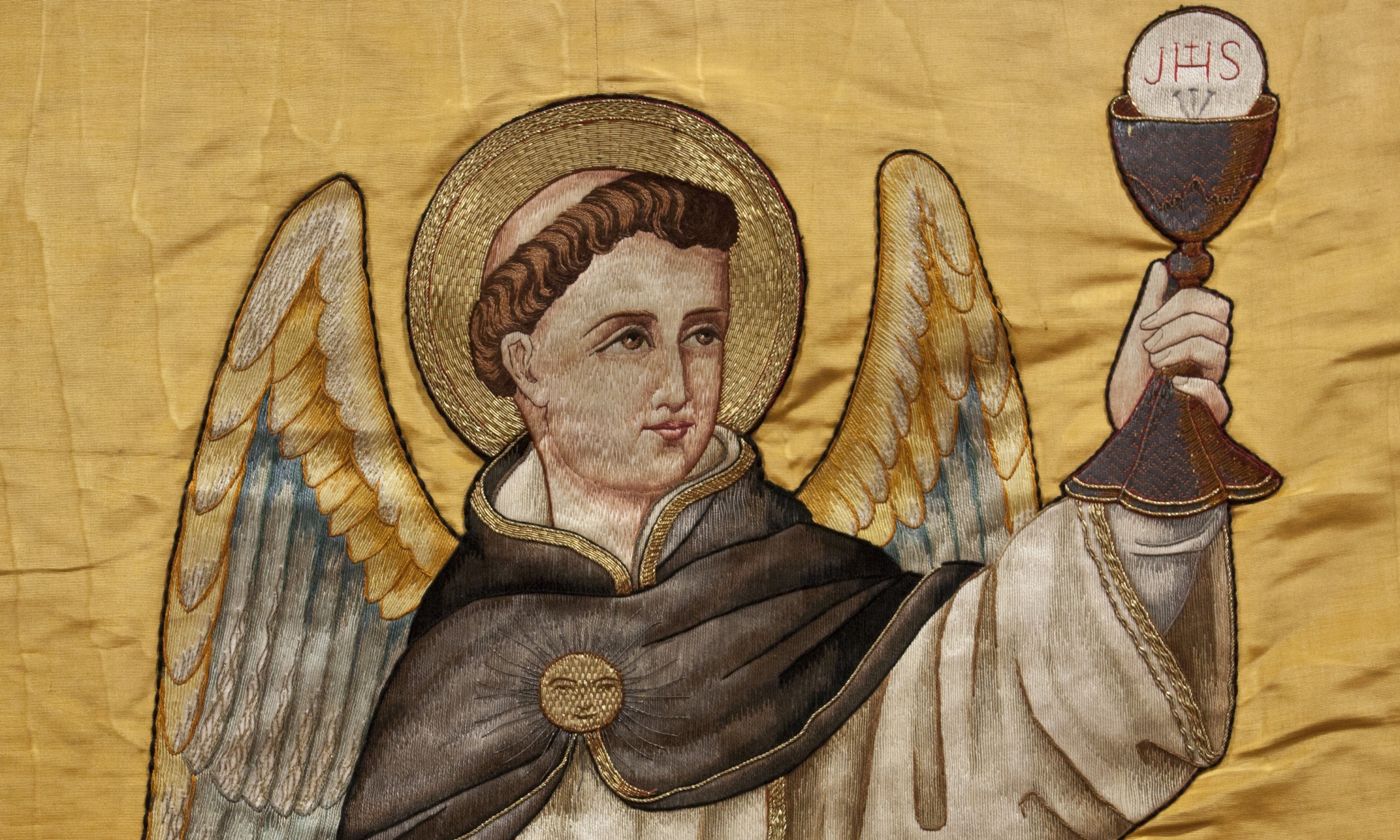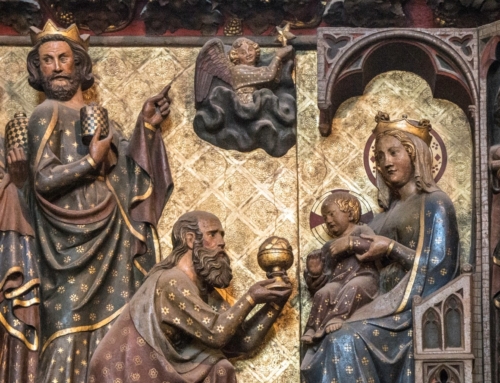Panis Vivus: An Essay on the Eucharist
A “panis vivus” essay is meant to convey, in no uncertain terms, that the Eucharist is really and truly the body, blood, soul, and divinity of Our Lord Jesus Christ. It is our collective response to the 2019 Pew Research Center survey, which reported that only a third of United States Catholics believe in the Real Presence.
The remedy for suffering is not getting rid of it—the remedy for suffering is bringing it to the Eucharist. What do I mean? Let’s take Saint Thomas Aquinas as our guide.
The Eucharist is the sacrament of the Lord’s Passion. Sacraments operate through signs. The separate consecration of the bread into Christ’s Body and the wine into Christ’s Blood signifies the Lord’s Passion, “in which the blood was separated from the body” (ST III, q.74, a.1). Through this sign, the Eucharist is conjoined to Christ’s suffering on the Cross—the inestimable fruits of which are applied to those who receive the Eucharist. Jesus’ suffering reveals something about our own suffering.
The Father in no way delighted in his Son’s suffering—that would be utter brutality, because Jesus was utterly innocent. What, then, pleased the Father, that he would raise Jesus from the dead? “He properly atones for an offense,” St. Thomas explains, “who offers something which the offended one loves equally, or even more than he detested the offense. But by suffering out of love and obedience, Christ gave more to God than was required to compensate for the offense of the whole human race” (ST III, q.48, a.2). Jesus obediently carried out the will of God for the redemption of the world. Jesus’ union with the Father in charity delighted the Father. At long last, the most ardent charity burned within a human heart, a charity never before seen in the likes of humankind. And, “because of its being found in human nature, God was appeased for every offense of the human race with regard to those who are made one with the crucified Christ” (ST III, q.49, a.4).
Jesus’ suffering was salvific because he accomplished it in union with the Father in charity. Our suffering becomes salvific through union with the crucified Christ in charity.
“In order to secure the effects of Christ’s Passion,” that is, eternal life in glory, “we must be likened unto him” (ST III, q.49, a.3, ad.2). A way of being likened unto Christ—a way we all experience—is through suffering. “It is right that we should first of all be conformed to Christ’s sufferings, before attaining to the immortality and impassibility of glory, which was begun in him, and by him acquired for us. Hence it behooves that our bodies should remain, for a time, subject to suffering, in order that we may merit the impassibility of glory, in conformity with Christ” (ST I-II, q.85, a.5, ad.2). Suffering is precisely the means by which we are conformed more perfectly to Christ and thus, like him, can enjoy eternal life.
The Eucharist brings about this conformity to the Crucified One. “Christ’s Passion, in virtue of which this sacrament is accomplished, is indeed the sufficient cause of glory, yet not so that we are immediately admitted to glory. Because we must first suffer with him in order that we may also be glorified afterwards with him (Rom 8:17), this sacrament does not at once admit us to glory, but bestows on us the power of coming unto glory” (ST III, q.79, a.2, ad.1). The power of coming unto glory is charity, by which we are united to Christ, who then conforms our suffering to his.
The Eucharist is not simply a memorial of Jesus’ Passion in its signification: “The Eucharist is the perfect sacrament of our Lord’s Passion, as containing Christ crucified” (ST III, q.73, a.5, ad.2). This is why St. Thomas calls the Eucharist “the sacrament of charity” (ST III, q.73, a.3, ad.3). In the Eucharist, charity unites us to Christ crucified and thus we are made perfect (Col 3:14). What does this look like with respect to suffering?
Charity does not burn away our suffering. This much is obvious—our physical suffering certainly does not cease nor does the inclination to sin automatically disappear after receiving the Eucharist. Rather, your suffering in body and soul is like the hot wax prepared to receive the seal of Jesus’ own crucified and risen self contained in the Eucharist. Charity, in fact, burns his own pattern into your very soul, and even your body. The sacrament of charity elevates your suffering, transforms it into the very means of arriving at your salvation because you have become Christ-like, indeed, another Christ. You can say, “I have been crucified with Christ; yet I live, no longer I, but Christ lives in me” (Gal 2:19-20). The pattern of Christ’s own life has been imprinted on you—through the simple and unassuming reception of the Crucified One in Holy Communion. The Eucharist, in other words, is an encounter with the Real Presence of the One Who suffered: “the Eucharist is the sacrament of Christ’s Passion according as a man is made perfect in union with Christ Who suffered” (ST III, q.73, a.3, ad.3).
“For if we have grown into union with him through a death like his, we shall also be united with him in the resurrection” (Rom 6:5).
✠
Photo by Fr. Lawrence Lew, O.P. (used with permission)







